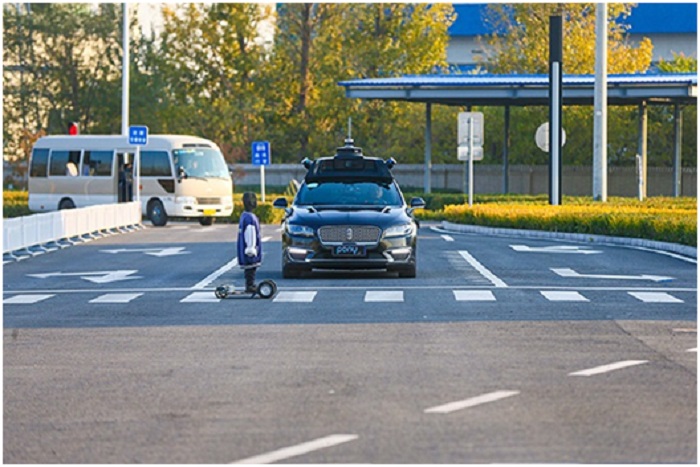



A demonstration zone for boosting the development of intelligent connected vehicles (ICVs) was recently approved in Beijing.
The demonstration zone covers an area of 225 square km in Yizhuang New Town, the Daxing International Airport area, and six highway sections in Yizhuang, Daxing District in southern Beijing.
In the demonstration zone, autopilot vehicles are allowed to be running on highways for testing, and unmanned delivery vehicles are also permitted to hit the road. The demonstration zone encourages charged commercial services offered by unmanned vehicles, and supports mutual recognition of ICV test results achieved in different parts of the country.
The demonstration zone was jointly planned by the Beijing Municipal Bureau of Economy and Information Technology (BMBEIT) and the Beijing Economic-Technological Development Area (BDA), and approved by municipal authorities on April 10, aiming to nurture a sound business environment for relevant enterprises in the Chinese capital.
The implementation plan specified 18 key tasks and measures in five major categories, said Kong Lei, deputy director of the management committee with the BDA.
According to him, when autopilot vehicles are proved to be safe and free from accidents throughout the tests, the safety supervisors, who are mostly on the driver’s seats to take over the vehicle in case of emergencies, will be gradually sitting in the front passenger seats and then the backseats. Finally, the vehicles will be left fully unattended, he said.
So far, Beijing has opened up 200 roads, which extend a total of 699.58 kilometers, for autopilot tests. The safety test distance exceeded 2.68 million kilometers.
According to the implementation plan, Beijing will gradually open up six expressways and freeways with a total length of 143 kilometers in the city accordingly for large-scale testing of autopilot vehicles, so as to speed up the application of autopilot under different scenarios, including trunk highway logistics, Kong said.
Jiang Guangzhi, deputy director of the BMBEIT, pointed out that the pilot zone is the first one in China centering on the innovation of management policies. It has systematically established a policy mechanism for road testing, demonstration applications, commercial operation services, and roadside infrastructure construction and operation of ICVs.
The implementation plan encourages ICVs, based on comprehensive tests, to carry out large-scale trial operation and commercial operation in the pilot zone of unmanned car-hailing services, intelligent networked buses, autopilot logistics vehicles, and autonomous valet parking. Enterprises may charge in these services, Jiang said.
The pilot zone will lay down application standards and management methods for unmanned delivery vehicles, research into traffic rules and traffic management modes suitable for these vehicles, and grant them corresponding rights of way, thus establishing an operation safety supervision system for unmanned delivery vehicles and tackling problems related to the rights of way and on-road management of autonomous delivery vans.
Beijing intends to adopt a step-by-step approach to expand new application scenarios of autonomous vehicles, such as retail and security, and ensure comprehensive commercial use of such vehicles, which Kong believes can help foster new products and business forms for future-oriented unattended economy.
The pilot zone will also make a plan to support mutual recognition of ICV test results achieved in different parts of the country, in an attempt to better facilitate enterprises, improve test efficiency and reduce test cost.


The Executive and members of the.


The Acting Director, FCT Directorate of.


President Bola Ahmed Tinubu has been.



Barely a month after resignation of.


An Abuja based Legal Practitioner, Osuagwu.



Convener of Equitable Remedy, Mrs. Magaret.


Contractors handling the contract for city.


Nigerian government may have concluded plans.


The Diplomatic Correspondents Association of Nigeria.


A rights group, “Follow Me Talk.
Leave a Comment